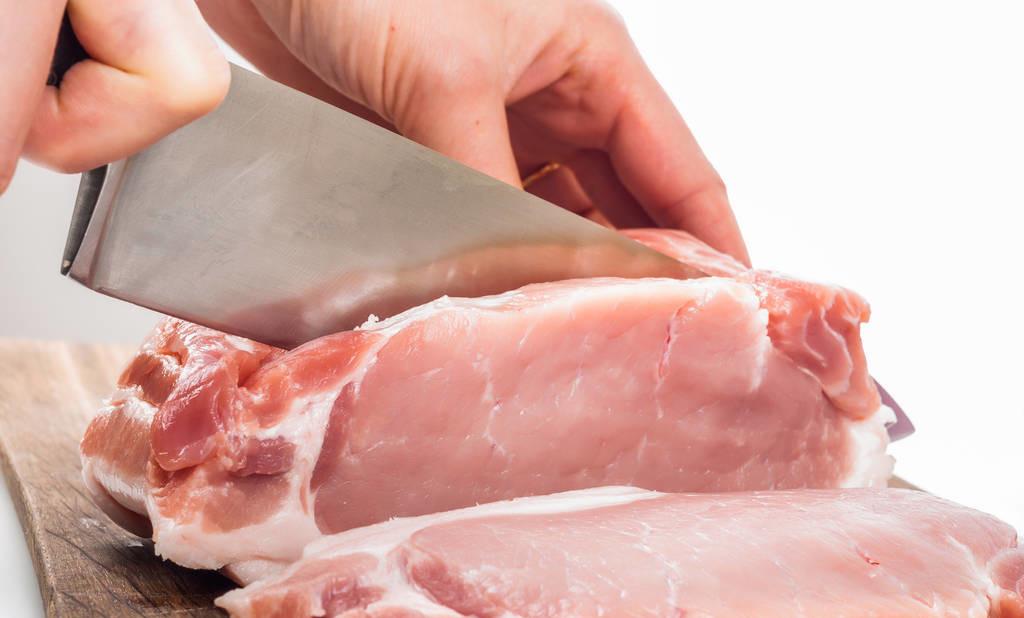A few days ago, there was a post on the Internet that hookworms were found in pork, and high temperatures could not kill! Many netizens look at the direct call is too disgusting, dare not eat pork! However, for friends who often read our popular science articles, I believe that everyone's cultivation in the field of nutrition and food should have at least three successful forces, right? I think it should be enough to dispel this rumor, at least the second half of it.

It is said that parasites are also fleshy, where can they not be afraid of high temperatures? Looking at the first half of the sentence, the adult hookworms are parasitic in the intestines of animals and humans, and do not parasitize the muscle tissue of pigs, and the real hookworms are not as long and thick as in the online pictures.
In fact, this rumor has often appeared on the Internet in recent years, and many experts have also identified that the hookworm in the pork that netizens say is actually the blood vessels, lymphatic vessels, tendons or connective tissue of pigs.
Although the rumors are dispelled, hookworm disease, as one of the five major parasitic diseases that endanger the health of the people in our country, it is still necessary for us to seriously understand it.
< h1 class="pgc-h-arrow-right" > hookworms to understand</h1>
Hookworms, whose full name is hook-mouth nematodes, are many species, but only a few can infect people. The main epidemics in China are "duodenal hookworm" and "American hookworm".
Hookworms prefer hot and humid environments. Therefore, the main endemic areas of hookworm disease in China are more than a dozen provinces south of the Yangtze River Basin, and are mainly rural areas. This is due to the fact that the main cause of human infection with hookworms is that bare skin comes into contact with hookworm larvae in the soil, so farmers working barefoot in the fields are at high risk for hookworm disease. Infected larvae entering directly through the mouth may also develop into adults in the intestine.
<h1 class = "pgc-h-arrow-right" > "vampire" hidden in the body</h1>
Adult hookworms parasitize the human intestine, about 1 cm long, attach to the intestinal mucosa with their well-developed sac bites, and feed on blood. To facilitate blood sucking, hookworms secrete anticoagulants, causing continuous bleeding of the intestinal mucosa at the site of the bite.
Hookworms also frequently change the site of the bite, causing extensive damage to the intestinal mucosa. Patients with hookworm disease experience gastrointestinal discomfort such as nausea, abdominal pain, and diarrhea, and long-term infection can lead to anemia.
Hookworms that parasitize the intestine lay thousands of eggs every day, excrete with feces, and hatch larvae in warm, moist soils. The larvae continue to develop in the soil and become infected larvae with the ability to infect, the filamentous larvae.
They move in the soil and, once they come into contact with the skin, they quickly burrow into the human body, and the skin at the touch site can develop hookworm dermatitis. Hookeria enter the body can migrate with the bloodstream, and finally reach the small intestine to settle down, develop into adult worms, and the next cycle begins again. Adult hookworms survive for years in the small intestine of humans and suck blood for a long time.
With the implementation of the rural water and toilet improvement project and the effective prevention and control of parasitic diseases in China in recent years, the prevalence of hookworm disease has decreased significantly, but some rural areas in the south still exist.
Therefore, it is also necessary to continue to strengthen prevention and control efforts and science popularization, conduct hookworm disease surveys in key endemic areas, give deworming treatment to infected people, and encourage farmers in endemic areas to change their barefoot and barefoot field work habits to reduce the chance of exposure to hookworms.
Text | Dr. Ma Health Group Dr. Ma Guansheng and Dr. Wang Xiaodan
<h1 class = "pgc-h-arrow-right" > Dr. Ma Guansheng</h1>
· Dean of the Department of Nutrition and Food Hygiene, School of Public Health, Peking University, Professor, Doctoral Supervisor
· Member of the National Advisory Committee on Food and Nutrition
· Vice Chairman of the Chinese Nutrition Society
· Member of the Central Science Popularization Work Committee of jiusan society
· Chief Science Communication Expert, China Association for Science and Technology